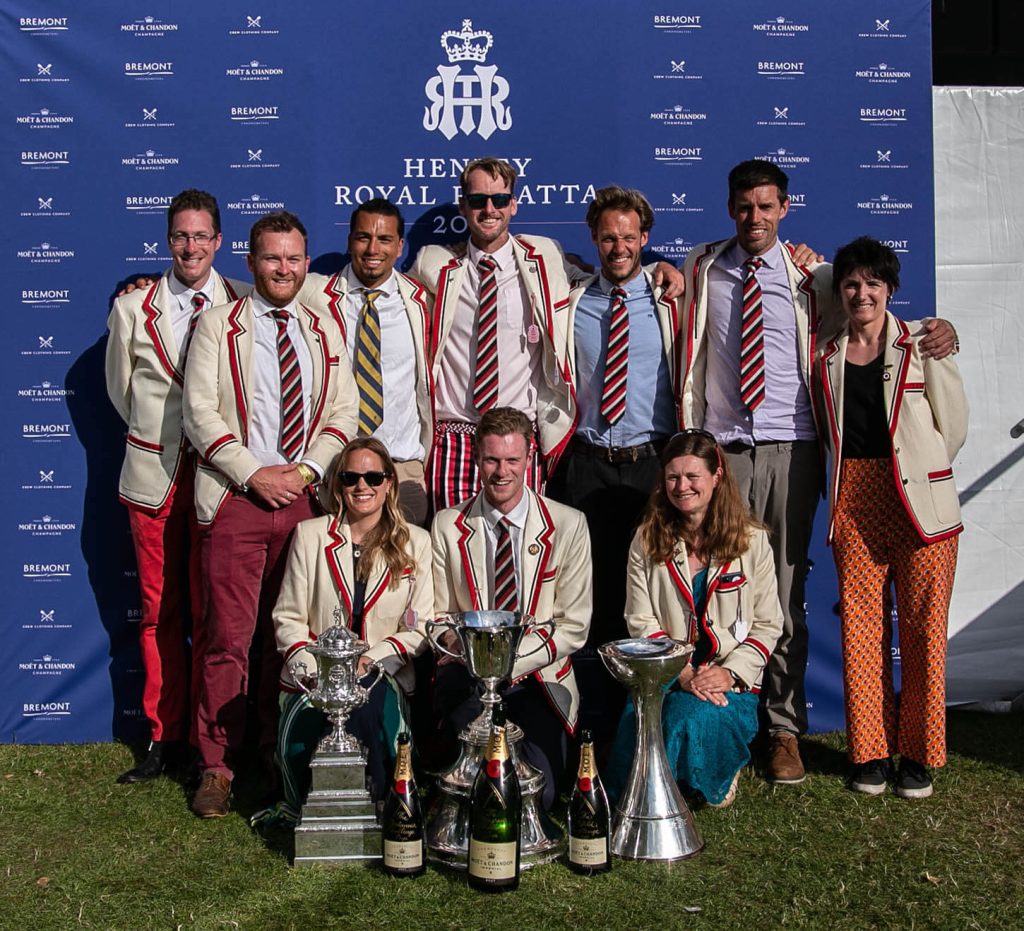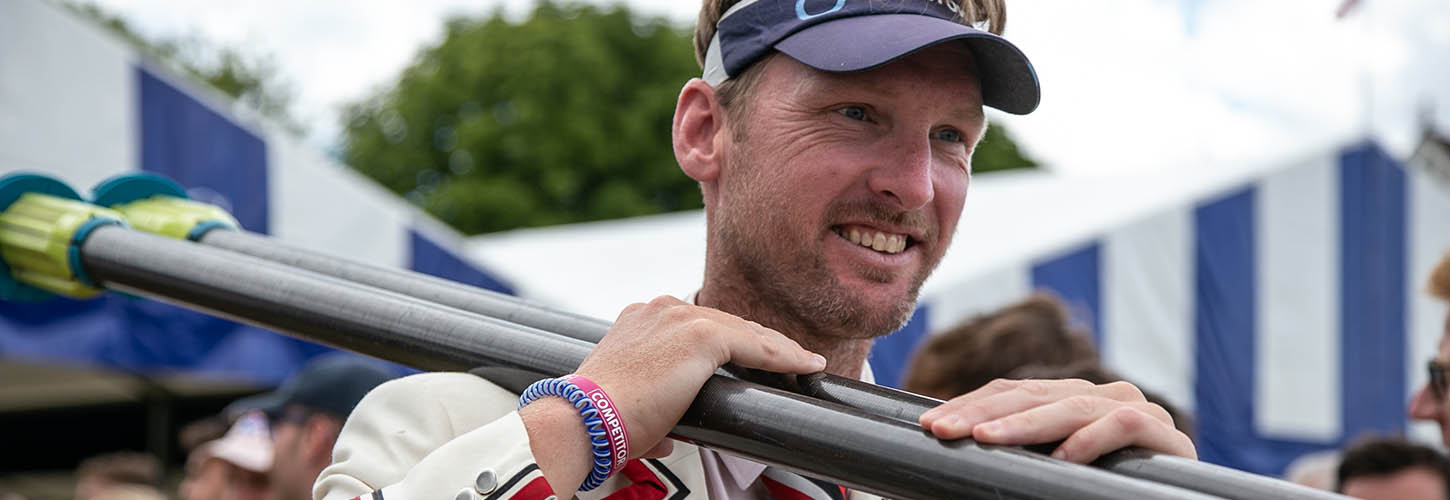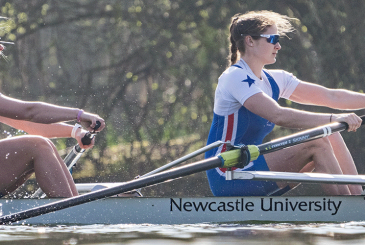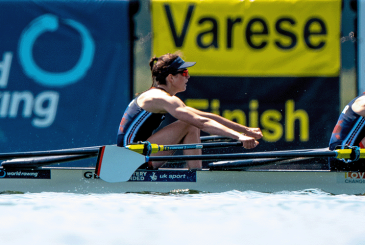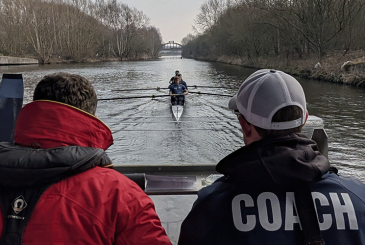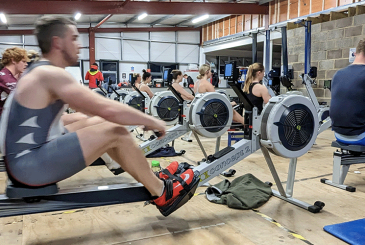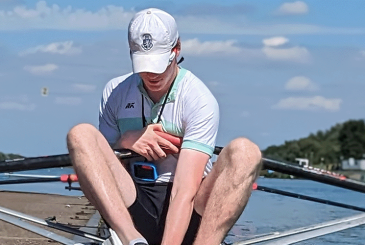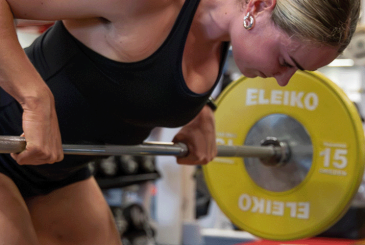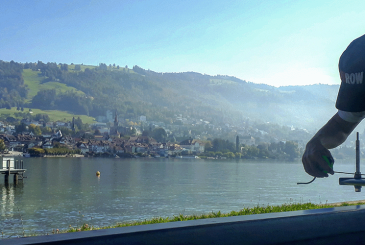In recent years Thames RC has become a fixture on finals day at Henley Royal Regatta after decades in the wilderness. Joanne Harris talks to head coach Sander Smulders about the club’s coaching philosophy, which has helped it to the top of club rowing
In 2003, Thames won their first Henley Royal Regatta trophy in almost half a century, taking the Wyfold Challenge Cup. The victory was the start of a renaissance for the Putney club, culminating in 2022 with wins in the Wargrave, Wyfold and Britannia Challenge Cups and the Copas Cup for intermediate club eights at Henley Women’s Regatta.
That summer’s success was masterminded by current head coach Alexander (Sander) Smulders. He joined Thames in autumn 2016 as an assistant coach to Ben Lewis, and stepped up to the top job at the start of 2019/20 when Lewis left.
Dutchman Smulders took to coaching while still a teenager, just because he liked teaching people to row, but first realised he could be good at it when coaching his younger sister Marlies. She went on to win silver with the Dutch women’s eight at the Beijing 2008 Olympic Games.
Before moving to the UK, Smulders coached predominantly for Nereus, a student club in Amsterdam, guiding the Dutch women’s under-23 coxless four to world bronze in 2016. He also spent time coaching at Harvard University. The Thames job came up at a time when Nereus were looking at the future of their programme.
Club culture
Thames was not a club particularly on Smulders’ radar prior to joining, and the UK club rowing culture was also new.
“It was a big challenge because everybody has a job here, but it was super helpful that I had Ben around me to explain to me what it’s like, what the structure’s like, what the difficulties are,” Smulders explains.
“Stick to the fundamentals”
“Also how to run a Henley campaign; being here is very different than being in the Netherlands because in the Netherlands it’s is more something you do at the end of the year. It’s more like a fun trip. But here it’s almost life or death, it’s the be-all and end-all unless you’re in the [GB] team.”
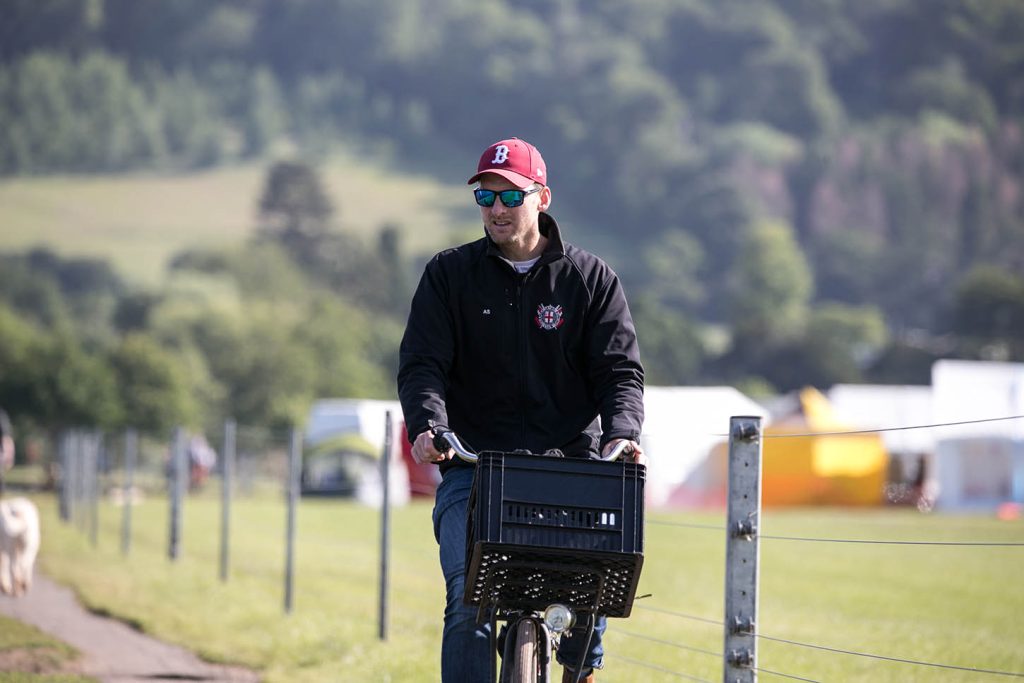
Lewis had built a culture at Thames best described by the motto “turn up, train hard and have fun”. His way of leading the squad was, Smulders admits, more emotional and intense than the direct Dutch approach, but at the heart of it is a desire not to be complacent. Smulders’ own motto is “assume nothing” – the sign-off to all his emails.
That attitude is reflected in how he thinks you should get the most out of club rowing.
“Stick to the fundamentals,” he says. “Just really good fundamental rowing, good fundamental training. And on race day, keep to that, even then, keep to the fundamentals.”
Where the process fails
One area where complacency did creep in last year was in race entries. After competing at both Quintin and Hammersmith Heads, Thames was disqualified when it emerged that crews had raced with undeclared substitutes. Despite a more rigorous procedure being put in place, the club omitted to make another substitution in a crew at Wallingford Regatta. Smulders is determined these incidences are now in the past; every entry is checked multiple times by the coaches and club captain, and more attention is being paid to when entries open and close.
“I messed up. We just got lazy and didn’t pay attention,” he admits. “Before you know it, you’re going really in the wrong direction.
“Sometimes you need to do something really stupid to wake up. Now we’re really on top of it, we always make sure everybody is aware of all the entries. We’re really hard on making sure we stay on track of what the subs are.”
Hungry for more
With that renewed focus comes a clear idea of how the club should keep pressing forward.
“A lot of other clubs see us, they are hunting us and they use us to raise their game”
“It all starts with a vision. You just need to have a really clear direction where you want to go and be incredibly hungry,” Smulders says.
Smulders credits Thames’ current success to the hard work done by those who have gone before, stretching back to the late 1990s.
“We should never take it for granted. It could be that the last two years were magical and this year it could be completely different because a lot of other clubs see us, they are hunting us and they use us to raise their game,” Smulders says.
In return, Thames is trying to achieve consistent success in both club and intermediate events at Henley Royal. Smulders says intermediate results are “a priority” but not “the priority” for Thames, which will remain focused on club events.
Rise of the women
These, of course, now include the Wargrave Challenge Cup at Henley Royal. Smulders picked up responsibility for the Thames women in 2018 and kept his attention on the women’s squad in his first two years as overall head coach in a bid to find a consistency the group had not had for some time; the squad is now led by women’s coach Tom Mapp.
This paid off with two successive Wargrave finals and the 2022 trophy, plus the Copas Cup wins at Henley Women’s in 2019 and 2022.
“The line of consistency with the men has been really good for pretty much almost a decade now, and with the women it was just the last four years, and now we’re stepping on from that,” Smulders says. Thames had, of course, been extremely dominant in women’s rowing in the 1990s, and produced many internationals in the pre-funding days when members of the GB women’s squad trained at their clubs for most of the year.
Keeping up the level of success Thames has had in the past few years is not going to be easy, but the challenge is half the joy. “It will be incredibly hard, it’ll be very tough, but that’s fun. You’ve got to go for it, you’ve got to dream big and therefore train big. It’s really exciting, it’s a challenge I’m loving every day,” Smulders concludes.
